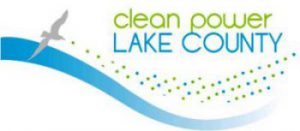We rode to Springfield on a bus. We rallied on the steps of the state capitol building. We conferred with our elected representatives.
We were 43 people from Waukegan and nearby Lake County communities—and we added our voices to those of more than 300 like-minded people from across the state on April 21, calling for prompt passage of the Illinois Clean Jobs Bill (HB 2607/SB 1485).
The bipartisan Illinois Clean Jobs Bill is supported by more than 41 co-sponsors in the House, 21 co-sponsors in the Senate, and a coalition of more than 160 businesses and 60 organizations.
The bill is designed to help consumers save money on energy, bring clean energy investment to communities, strengthen local tax bases and create family-sustaining jobs, according to the bill’s legislative co-sponsors.
Unfortunately, a full year has passed since the Clean Jobs Bill was introduced in the Illinois legislature.
In that time, Illinois has lost 152 solar jobs and 431 wind jobs. At the same time, Michigan has added nearly 700 solar jobs and Ohio has added more than 500 solar jobs, according to Michelle Knox, owner of WindSolar USA in Owaneco, who spoke at the Environmental Lobby Day rally.
“We simply cannot afford to be here a year from today, listing more and more states that, by then, will have passed us by,” said Sen. Don Harmon of Oak Park, a lead sponsor of the bill. “Illinois needs to act, and we need to act now.”
For many Illinois residents attending the rally, the shift to a clean energy economy is personal.
Among them, Dulce Ortiz, a Waukegan resident and a leader with the Clean Power Lake County Campaign.
“I am here because every family has the right to breathe clean air and have a healthy environment. Clean energy will bring jobs and opportunity to places like Waukegan, which desperately needs economic development,” Ortiz said. “It’s time to get these policies right. Bringing those projects home is a win-win for everyone in the community. We bring in more jobs and make sure my community is not left behind in the new economy. More importantly, it means the air our children breathe is less likely to make them sick.”
